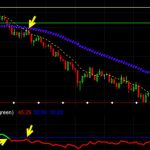Embarking on the journey of trading in financial markets can be both exhilarating and daunting, especially for beginners. While the allure of potential profits is enticing, navigating the complexities of trading requires careful planning, discipline, and a solid understanding of market dynamics.
Fortunately, with the right knowledge and strategies, beginners can set themselves up for success and embark on a rewarding trading journey. In this comprehensive guide, we’ll explore profitable trading strategies tailored for beginners, providing valuable insights and practical tips to help navigate the world of trading with confidence and proficiency.
1. Develop a Solid Foundation
Before diving into trading, it’s essential for beginners to develop a solid understanding of the fundamentals of financial markets, including key concepts such as supply and demand, market trends, technical analysis, and risk management.
Take the time to educate yourself through books, online courses, seminars, and reputable financial websites. Familiarize yourself with different asset classes, trading instruments, and market dynamics to gain a comprehensive understanding of how markets operate and what drives price movements.
2. Set Clear Goals and Define Your Trading Style
One of the keys to successful trading is setting clear, achievable goals and defining your trading style based on your risk tolerance, time horizon, and financial objectives.
Determine whether you prefer short-term trading (day trading or swing trading) or long-term investing (position trading or trend following) and align your trading strategy accordingly. Establish realistic profit targets and risk management rules to guide your trading decisions and help you stay disciplined in the face of market fluctuations.
3. Choose the Right Broker and Trading Platform
Selecting the right broker and trading platform is crucial for beginners to execute their trading strategies effectively and efficiently.
Look for a reputable broker that offers competitive pricing, a user-friendly trading platform, a wide range of tradable assets, and robust research and analysis tools. Take the time to compare different brokers and read reviews to find one that meets your needs and preferences.
4. Start Small and Practice Patience
When starting out in trading, it’s important for beginners to start small and practice patience. Avoid the temptation to dive in headfirst with large sums of money and instead start with a small trading account that you can afford to lose.
Focus on building your skills and gaining experience gradually, rather than chasing quick profits or trying to time the market. Remember that trading is a marathon, not a sprint, and success takes time, discipline, and perseverance.
5. Use Technical and Fundamental Analysis
Technical and fundamental analysis are two essential tools that traders use to analyze market trends, identify trading opportunities, and make informed decisions.
Technical analysis involves studying price charts, patterns, and indicators to predict future price movements, while fundamental analysis involves analyzing economic data, company fundamentals, and market news to assess the intrinsic value of an asset.
Beginners should familiarize themselves with both approaches and use them in combination to develop a well-rounded trading strategy.
6. Implement Risk Management Strategies
Risk management is a critical aspect of successful trading and involves managing your capital effectively to minimize losses and protect your investment. Beginners should implement risk management strategies such as setting stop-loss orders, diversifying their portfolio, and limiting the size of each trade to a small percentage of their total capital.
By managing risk effectively, traders can preserve their capital and mitigate the impact of market volatility on their trading account.
7. Continuously Educate Yourself and Adapt
Finally, successful trading requires a commitment to continuous learning and adaptation to changing market conditions. Stay informed about current market trends, economic events, and geopolitical developments that may impact your trading decisions.
Continuously educate yourself through books, courses, seminars, and interaction with experienced traders to expand your knowledge and refine your trading skills. Be flexible and willing to adapt your trading strategy based on new information and market feedback to stay ahead of the curve and maximize your trading success.
Conclusion
Trading in financial markets offers exciting opportunities for beginners to grow their wealth and achieve their financial goals. By following these profitable trading strategies tailored for beginners, aspiring traders can navigate the world of trading with confidence and proficiency.
Develop a solid foundation of knowledge, set clear goals and define your trading style, choose the right broker and trading platform, start small and practice patience, use technical and fundamental analysis, implement risk management strategies, and continuously educate yourself and adapt to changing market conditions.
With dedication, discipline, and perseverance, beginners can unlock the path to trading success and embark on a rewarding journey towards financial freedom.













